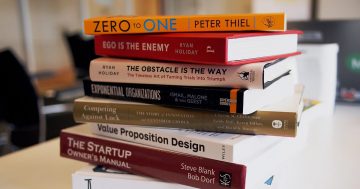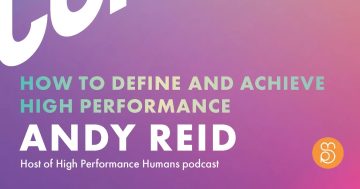
Having too high standards means there’s always more you feel you could and should do. Photo: File.
May Busch says there is nothing wrong with having high standards, but when it becomes a constant quest for perfection, it can be a drag on your career.
Are you hard on yourself? Like beating yourself up about the one small mistake you made in the presentation when the meeting was actually a huge success.
Or focusing on the one piece of “you could do better” feedback from your boss and ignoring the 10 positive ones. If so, you are not alone. Who could blame us for having high standards? That’s what got us where we are now.
The downside is there’s always more you feel you could and should do. Like more you could prepare before the big meeting; more you could study before the exam; more time you should be spending with your loved ones. When ”more” is a moving target, it’s hard to measure up.
There’s always someone who’s better than you at everything you do; or richer, taller, smarter, harder working, more attractive, more successful and so on. It’s like pulling a sledge full of heavy baggage that weighs you down and saps your energy. That’s energy you could be putting towards something productive that moves you closer to the aspirations you have, or energy you could spend on enjoying your life. Here are three steps you can take to lessen the pressure and stop being so hard on yourself.
Remember to stay out of the gap: This gap is the difference between where you are now and the ideal you aspire to. For example, my definition of success was the level I was at in my organisation plus one. So, when I was an associate, success meant promotion to vice-president, but when I finally got promoted to VP, I was already looking to the next promotion and spent hardly any time feeling good about the promotion I had just attained.
Similarly, once I got the courage to speak up in a meeting, which was a giant step forward for me, I became dissatisfied with the content of what I was saying and how I was saying it. Instead of measuring yourself against the ideal, especially when it’s a moving target, you want to measure the “current you” relative to where you started out.
As the saying goes, it’s about progress, not perfection. So focus on your wins, no matter how big or small, and encourage yourself to keep moving forward without being dragged down by that heavy sledge of being hard on yourself.
Make the shift from judging to appreciating: it’s so easy to fall into the trap of finding fault, whether that’s with yourself or with others.
I framed it as looking for ways to improve, but it always felt heavy and draining. At other times, it was my critical thinking ability on overdrive, which quickly turned into criticising. Whether you’re criticising others or yourself, it’s a form of negative energy and unhelpful. When you judge others, it’s natural to assume they’re doing the same to you or at
least wonder what they might be thinking of you. That, in turn, leads to judging yourself.
So, every time you find yourself judging yourself or others, make the shift to appreciating. When you focus on what you appreciate about someone, it stops the negative cycle and creates a positive one.
Get out of your own head: I remember comparing myself to my colleagues and feeling like I fell short on every front. Ross was more analytical than me, Liz was better at financial theory, Cathy was calmer under pressure, and Brian was just plain smarter than all of us. With all those negative thoughts, it’s no wonder I lacked the crucial confidence that would have propelled me further ahead in my career faster. What I had overlooked entirely was the fact that I had my own unique set of strengths, in particular my client relationship skills.
All of which shows how easy it is to have a distorted view of yourself relative to others. After all, you see the ”behind-the-scenes” version of yourself (with warts and all) but only the shiny ”front-stage” version of everyone else. Since this doesn’t serve you well, it’s time to change your perspective and see yourself from the outside too. That makes it ”apples to apples”. Or better yet, don’t compare yourself to others at all.
Remember that we all learn and do things at different rates, and it usually doesn’t matter much if you get there in the end. For example, children who learn to walk after they turn one end up being just as good at walking as those who started walking sooner.
While it took me longer to be promoted to managing director than some others, my career had more staying power than theirs did. So, instead of ”should-ing” on yourself, tap into the question: “Where do I want to take things from here?”
May Busch’s mission is to help leaders and their organisations achieve their full potential. She works with smart entrepreneurs and top managements to build their businesses. She can be contacted at [email protected]. This article first appeared on May’s blogsite.











